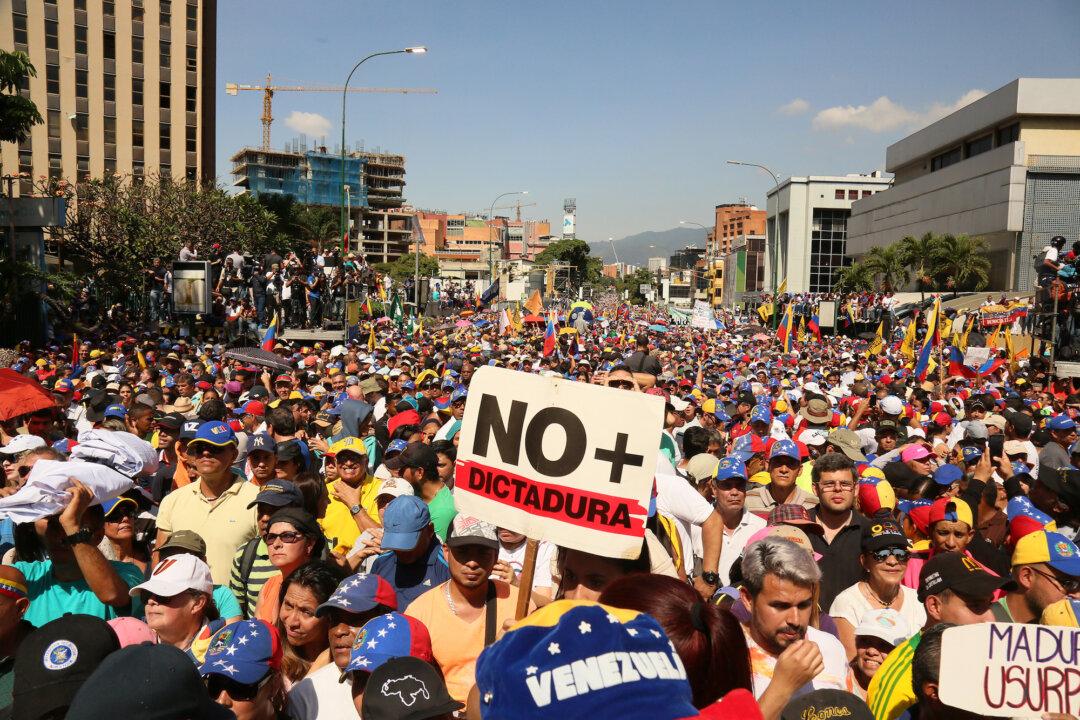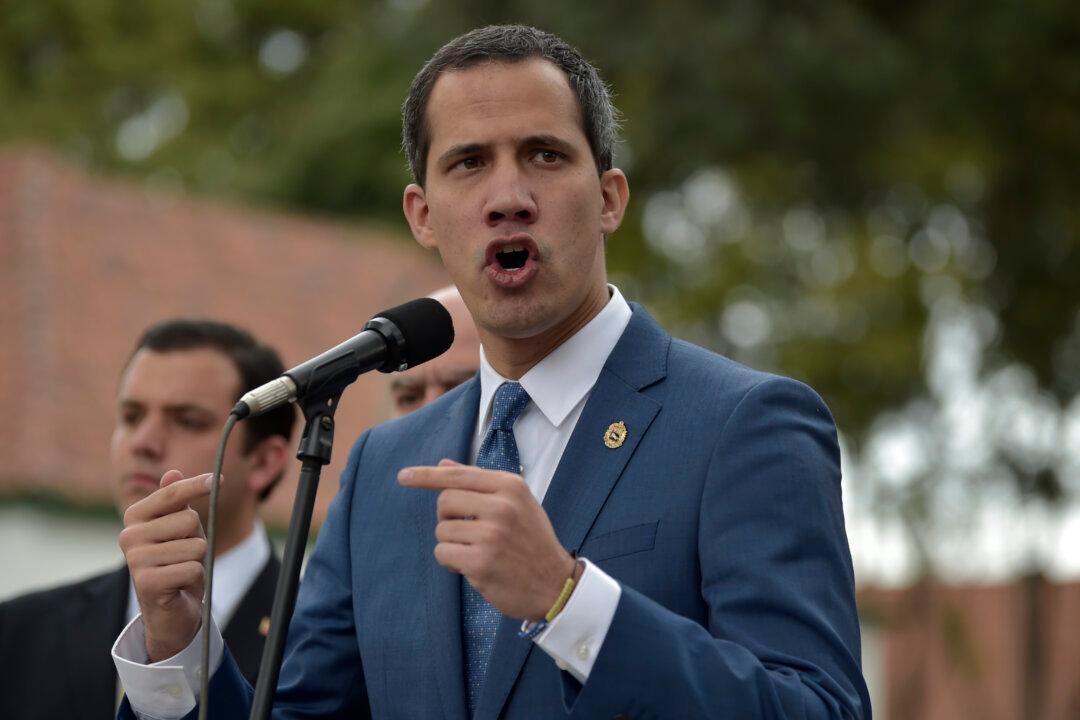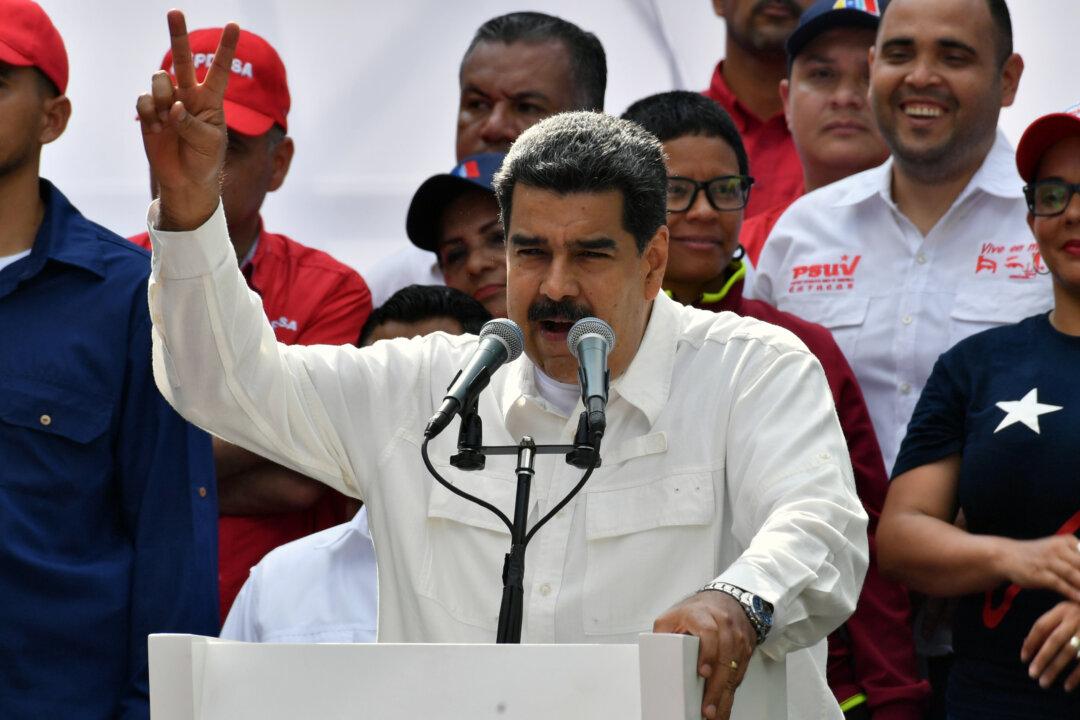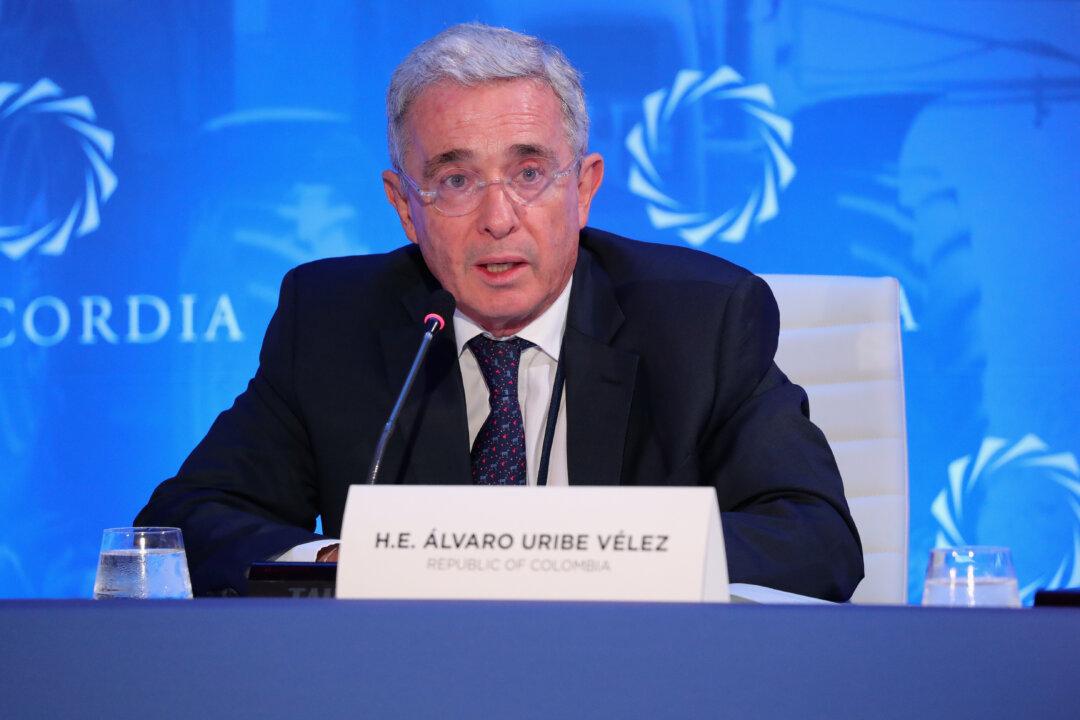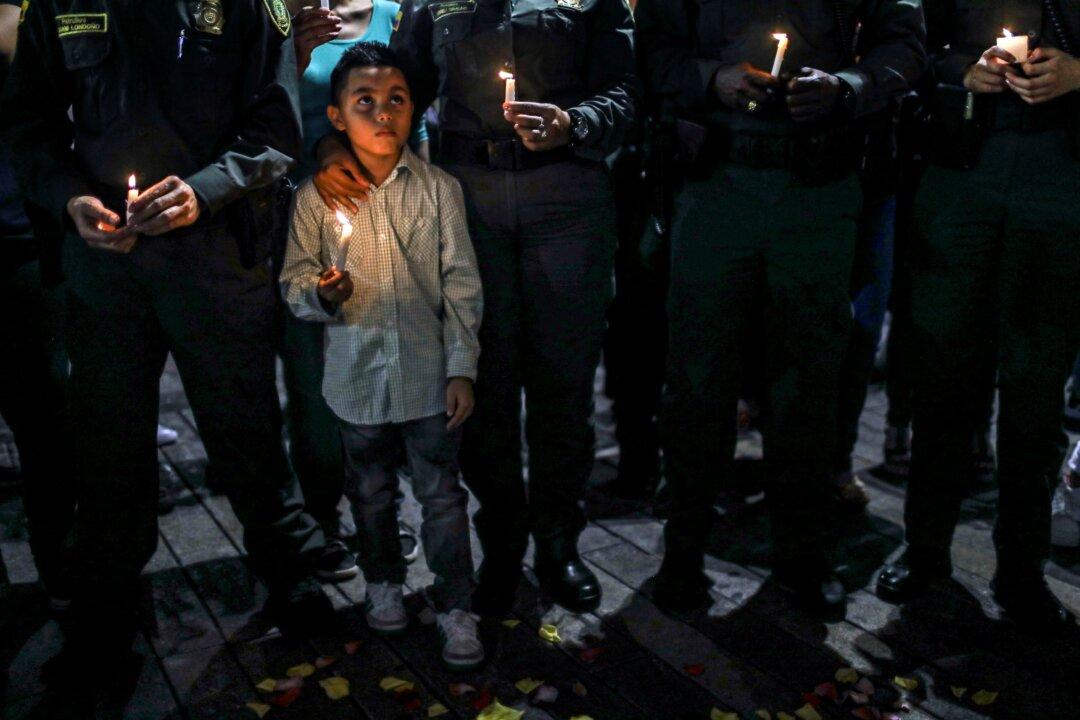BOGOTA, Colombia—Tens of thousands of protesters took to the streets of remote towns and metropolitan cities across Venezuela on Feb. 2 to call for the resignation of Nicolas Maduro, who is facing growing pressure to step down as president.
Despite suffering widespread food and medicine shortages alongside persistent power and water cuts, the scenes were of jubilation rather than despair. Crowds jumped up and down in streets and metro stations across Caracas waving the country’s tricolor flag and singing Venezuela’s national anthem lifted by a growing sentiment that the military-backed government could be in its last days.
